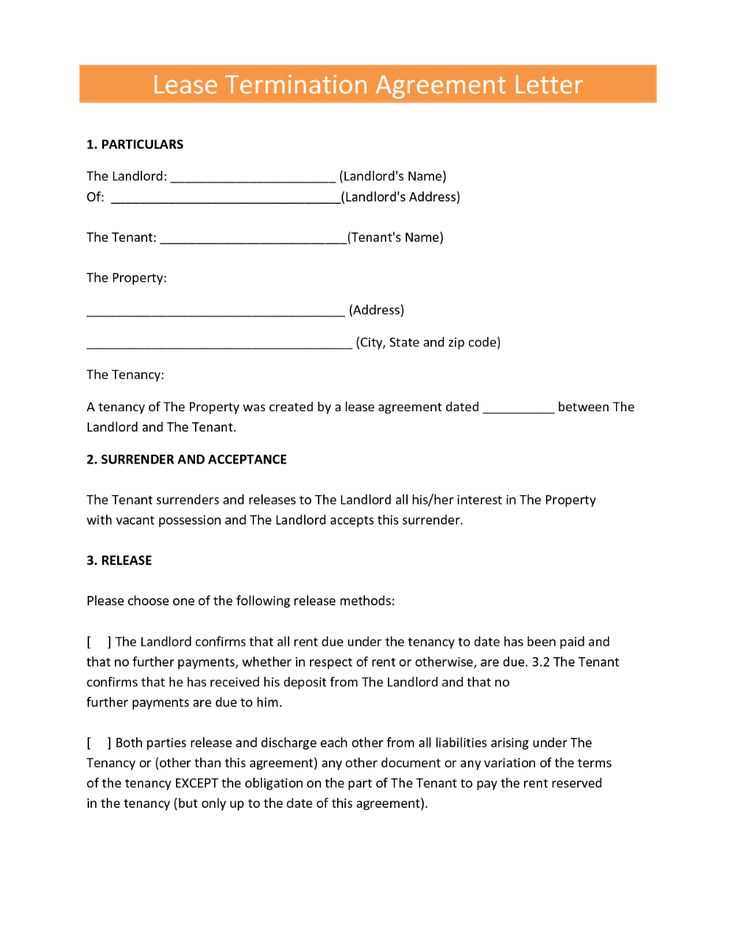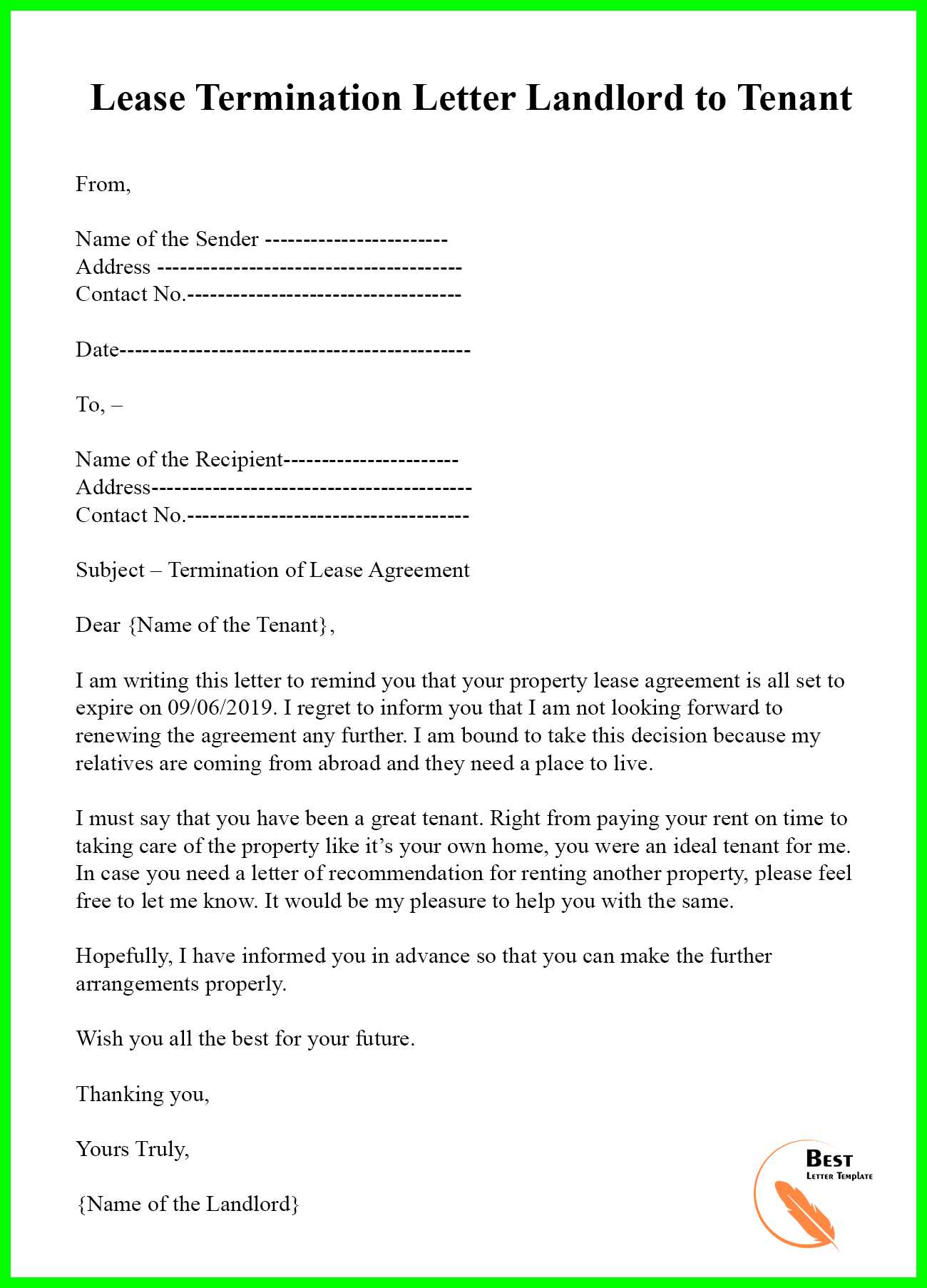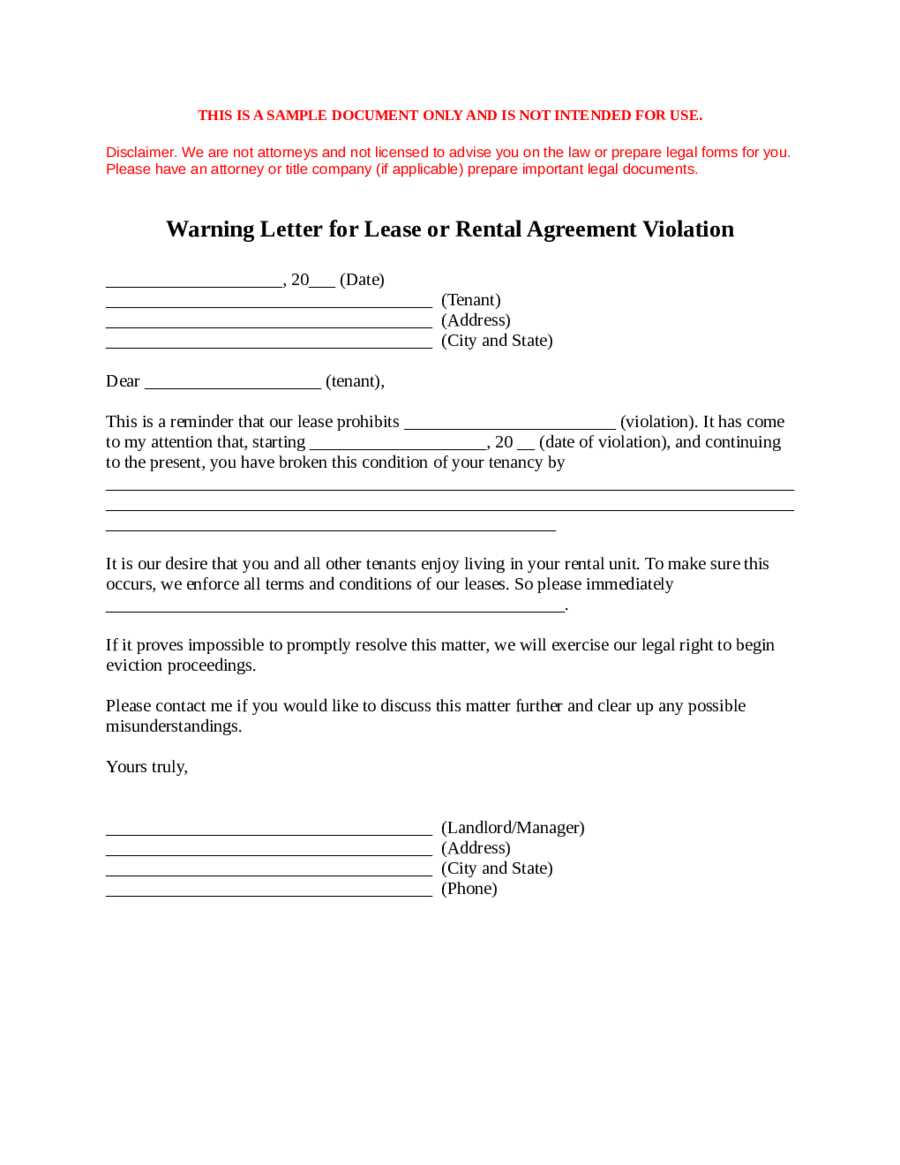Early Lease Termination Letter Template for Tenants

Sometimes life changes unexpectedly, and you may find yourself needing to end your housing contract before the agreed-upon time. Whether it’s due to a job relocation, personal reasons, or other circumstances, breaking a rental agreement can seem complicated. However, with the right approach and documentation, this process can be made much smoother and legally sound.
Knowing what steps to take is crucial to avoid unnecessary penalties or legal trouble. One important aspect is crafting a formal communication to notify the landlord, ensuring that both parties are on the same page regarding the decision. A well-written request can help ensure a quicker resolution and protect your interests throughout the process.
In this guide, we will provide insights into how to properly handle the situation, focusing on the necessary components for communicating your intent clearly and professionally. Whether you’re drafting your own notice or simply looking for a starting point, this resource will help you navigate the process with confidence.
Understanding Early Lease Cancellation
When to Submit a Termination Letter
Ending a housing agreement before the agreed-upon date can be a necessary but complex step. It’s essential to know when and how to take action to ensure that the process is smooth and legally compliant. The key lies in recognizing the right moment to notify your landlord and taking the proper steps to avoid complications later on.

Generally, the decision to end the contract early should be based on specific circumstances such as moving for work, family matters, or unforeseen financial issues. The timing of your request is critical–waiting too long could lead to additional costs or penalties, while notifying the landlord too early might not provide enough time for necessary adjustments.
Submitting the appropriate document at the right time can set the stage for a peaceful resolution. It’s crucial to communicate your intent in a professional manner, ensuring all relevant details are clearly stated. Taking this step helps protect both parties and ensures that the end of the agreement occurs with minimal disruption.
Key Components of a Lease End Request
How to Format Your Letter Properly
When preparing a request to end a rental agreement, it’s important to ensure that all necessary details are included for clarity and to avoid any misunderstandings. A well-structured notice should be concise, respectful, and legally sound, covering all the relevant points that both you and your landlord need to know.

Start with clear identification: Begin by providing your full name, address, and the details of the property in question. This helps the landlord easily identify you and the specific contract in question. Make sure to include the date on which you intend to conclude the arrangement.
Next, be direct about your request to end the agreement. State the reason for your decision if necessary, though in many cases it is optional. Be sure to mention any dates related to the agreement and specify when you plan to vacate. Keep the tone formal and professional throughout, showing your willingness to cooperate with the process.

Lastly, consider including a request for a final inspection of the property, as well as instructions on how to return keys or other items. It’s essential that you outline the next steps clearly to avoid any confusion for both parties.
Legal Aspects of Early Lease Ending
Important Details to Consider Before Sending
Before submitting a formal request to conclude your rental agreement, it is crucial to understand the legal implications that may arise. Knowing your rights and obligations ensures that the process goes smoothly, helping you avoid unnecessary disputes or financial penalties. Different regions and contracts may have varying regulations, so it’s important to be fully informed before taking action.
Review the terms of your contract thoroughly to determine if there are any clauses related to ending the arrangement prematurely. Some agreements include penalties or fees for breaking the terms early, while others may outline specific procedures or notice periods. Understanding these terms can help you avoid unexpected costs and ensure you comply with the agreed-upon rules.
Additionally, consider whether any local laws or rental regulations provide additional protections or requirements. For example, some areas allow tenants to end their contracts without penalty under certain circumstances, such as job relocation or health issues. Being aware of these legal provisions can offer valuable insight into the best way to approach the situation.
Finally, make sure to keep a record of all communications with your landlord, including the request itself. This can serve as important documentation in case any issues arise in the future. With proper knowledge and preparation, you can navigate this process with confidence and ensure both parties are treated fairly.